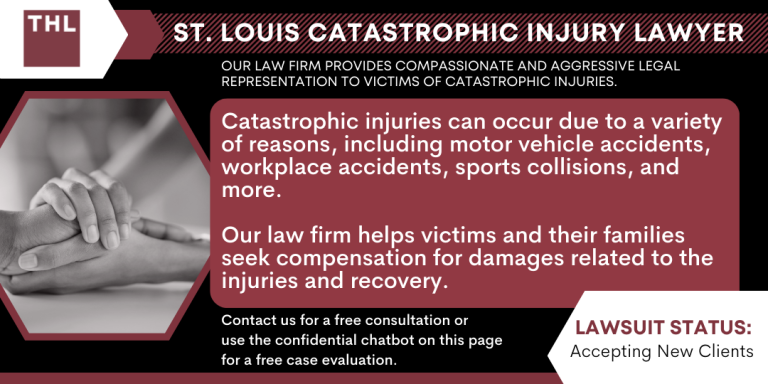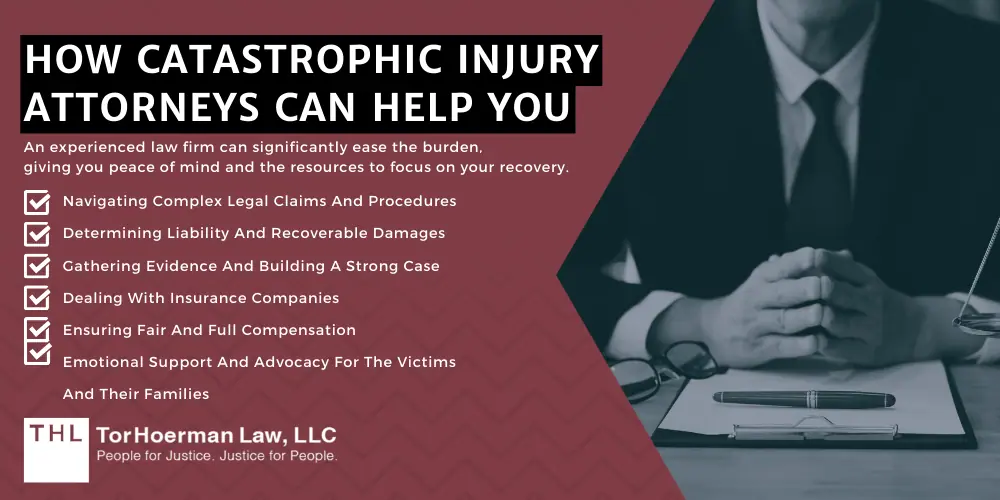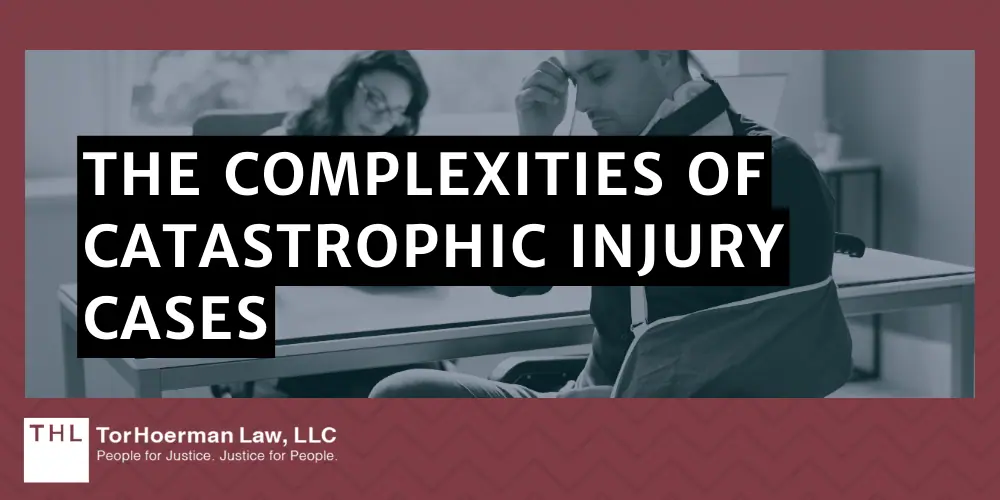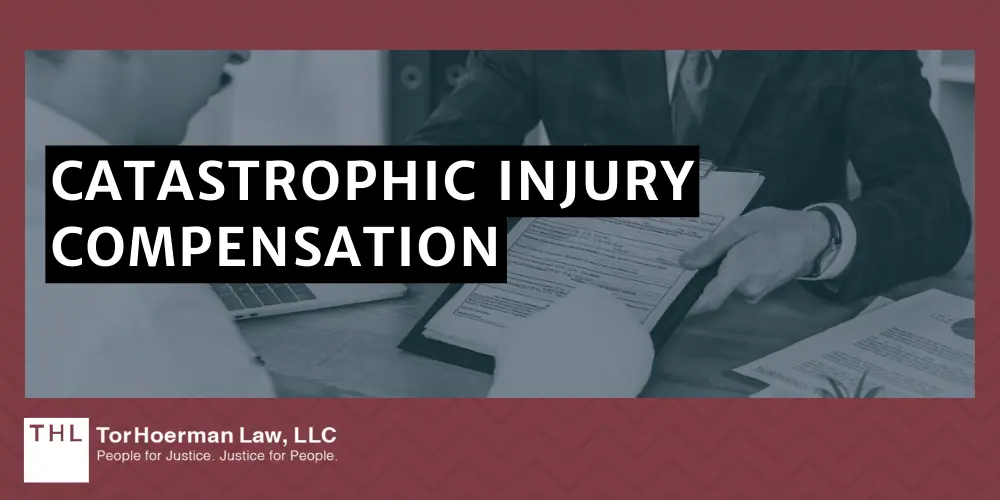Catastrophic injuries encompass a wide range of severe, debilitating conditions that drastically impact a person’s quality of life.
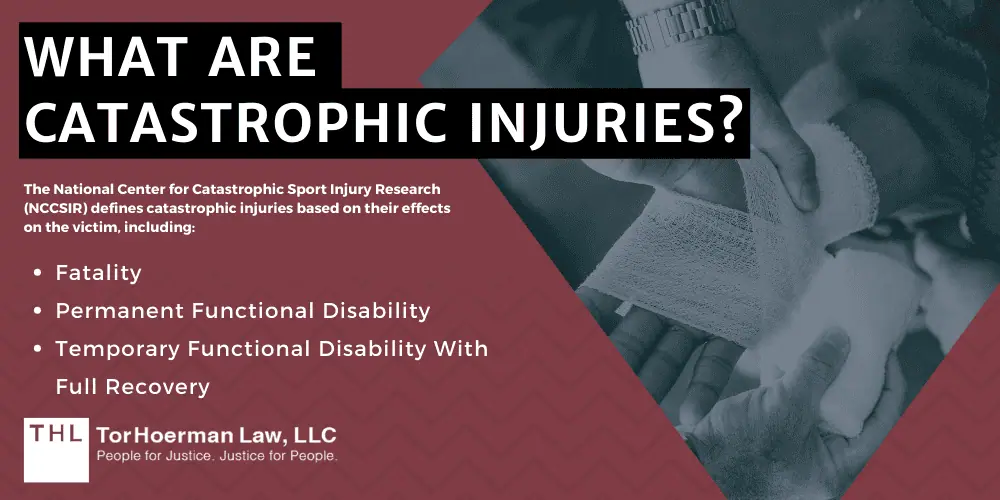
The National Center for Catastrophic Sport Injury Research (NCCSIR) defines catastrophic injuries based on their effects on the victim, including:
- Fatality: Injuries that result in the victim’s death
- Permanent Functional Disability: Injuries that cause permanent and severe limitations to a person’s physical or mental abilities
- Temporary Functional Disability With Full Recovery: Injuries that cause temporary but severe limitations to a person’s physical or mental abilities, with full recovery expected
The implications of catastrophic injuries that do not result in death often extend far beyond the immediate physical harm.
Catastrophic injuries often necessitate long-term, sometimes lifelong medical care, rehabilitation, and support services.
In many cases, the victims are unable to return to their previous employment, which can lead to significant financial strain and the need for vocational retraining.
The psychological impact is also profound, with many individuals experiencing emotional trauma, depression, and a drastic change in lifestyle and independence.
Common Causes of Catastrophic Injuries
Scenarios leading to catastrophic injuries are varied, encompassing both common and extraordinary circumstances.
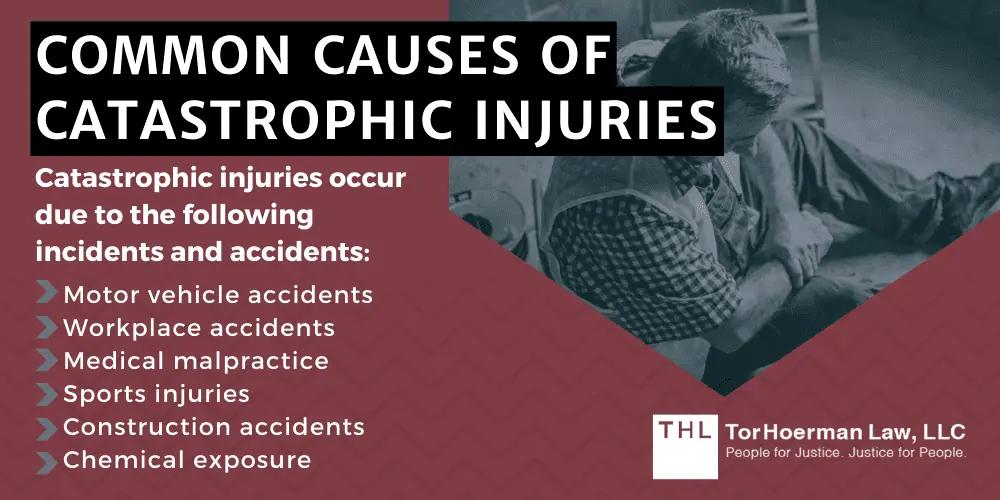
Catastrophic injuries occur due to the following incidents and accidents:
- Motor vehicle accidents
- Workplace accidents
- Medical malpractice
- Sports injuries
- Construction accidents
- Chemical exposure
Examples of Catastrophic Injuries
Catastrophic injuries are severe injuries that result in long-term, often permanent disability or disfigurement.
These injuries can drastically alter the lives of victims and their families.
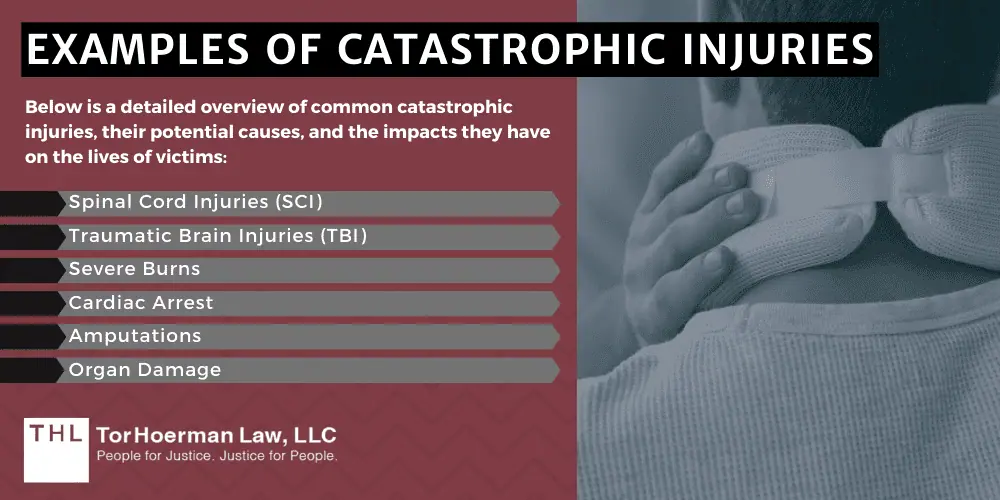
Below is a detailed overview of common catastrophic injuries, their potential causes, and the impacts they have on the lives of victims:
- Spinal Cord Injuries (SCI): These injuries can result in partial or complete paralysis. Causes include severe trauma from motor vehicle accidents, falls, or sports injuries. Victims of spinal cord and neck injuries may face lifelong challenges such as loss of mobility and independence, requiring extensive rehabilitation and support.
- Traumatic Brain Injuries (TBI): Traumatic brain injury refers to injuries that range from mild concussions to severe brain damage. They often occur in vehicle accidents, falls, or sports. Long-term effects can include cognitive impairment, emotional and behavioral changes, and physical disabilities.
- Severe Burns: These can be caused by fires, chemical exposure, or electrical accidents. Severe burns may result in disfigurement, excruciating pain, and require prolonged medical treatment including surgeries and skin grafts.
- Cardiac Arrest: Often resulting from severe trauma or medical conditions, cardiac arrest can lead to brain damage due to lack of oxygen and may have lasting health implications.
- Amputations: Traumatic amputations can happen in accidents involving heavy machinery, vehicle collisions, or severe burns. This leads to a significant alteration in lifestyle and may require prosthetics and physical therapy.
- Organ Damage: This can occur due to blunt force trauma, medical malpractice, or exposure to toxins. Organ damage can have life-threatening consequences and often requires surgical intervention and long-term medical care.
Victims of serious injuries may experience chronic pain, paralysis, loss of mobility and independence, and require long-term medical care and rehabilitation.
While most catastrophic injuries are apparent immediately after an accident, some symptoms may not manifest until months or years later.
For example, brain damage and or a spinal cord injury may take time to develop fully and show symptoms.
It is crucial to seek urgent and extensive medical treatment after an accident and continue monitoring your health for any signs of severe injuries.
Long-Term Implications of Catastrophic Injuries
Catastrophic injuries lead to profound, life-altering consequences that extend well beyond the physical damage.
The impact is far-reaching, affecting not only the victims but also their families, altering every aspect of their lives.
Victims and their families face immense emotional and financial burdens, coping with medical bills, lost wages, and the challenges of adapting to a new way of life.
Physical and Medical Challenges:
- Ongoing Medical Care: Victims often require continuous medical treatments, surgeries, and specialized care. This can include physical therapy, pain management, and other forms of rehabilitation.
- Assistive Devices and Home Modifications: Many survivors depend on assistive devices like wheelchairs or prosthetics and may need significant modifications to their living spaces for accessibility and independence.
- Lifelong Dependency: Some victims might face a lifetime of dependency on caregivers for daily activities, significantly altering their sense of independence and self-sufficiency.
Financial Impacts:
- Medical Expenses: The cost of ongoing medical care, rehabilitation, assistive devices, and home modifications can be astronomical, placing a substantial financial burden on victims and their families.
- Lost Wages and Earning Capacity: Many victims are unable to return to their previous jobs, resulting in lost wages and a diminished earning capacity. This financial strain can be exacerbated by the need for vocational retraining or unemployment.
Emotional and Psychological Effects:
- Mental Health: The trauma of experiencing and living with a catastrophic injury can lead to mental health issues such as depression, anxiety, and post-traumatic stress disorder (PTSD).
- Relationship Strains: The stress of coping with a catastrophic injury can significantly strain relationships with family, friends, and partners, often requiring counseling or therapy.
Social and Lifestyle Changes:
- Altered Social Life: The physical and emotional challenges can lead to social isolation, as victims might find it difficult to engage in social activities they once enjoyed.
- Lifestyle Adjustments: Adapting to a new way of life, with its limitations and dependencies, can be a challenging and ongoing process for both the victims and their families.
Importance of Legal Representation
In the wake of a catastrophic injury, victims and their families may find themselves overwhelmed by the complexities of the legal process.
Personal injury lawyers specialize in navigating these cases and providing support to those who have suffered from devastating injuries.
The support of a law firm that specializes in personal injuries is essential not only for addressing the immediate needs following the injury but also for ensuring long-term care and financial stability.
Legal intervention can play a critical role in securing adequate compensation to cover medical expenses, lost wages, pain and suffering, and the costs associated with long-term care and lifestyle adjustments.


